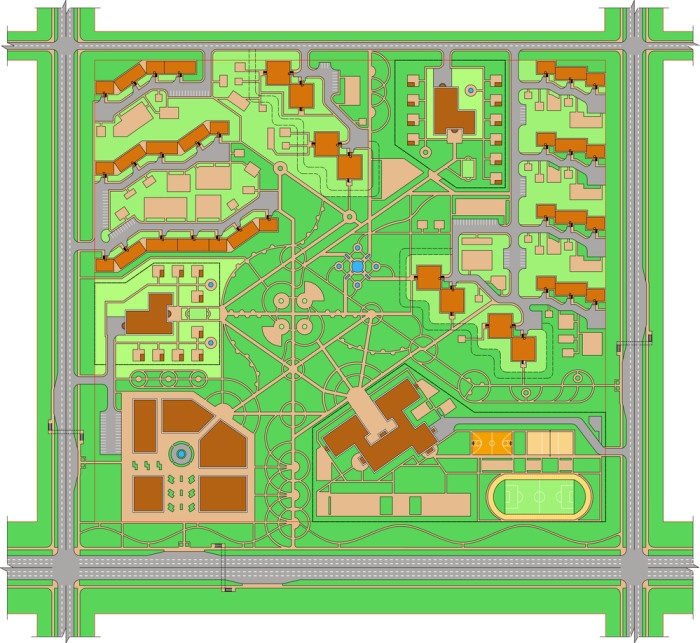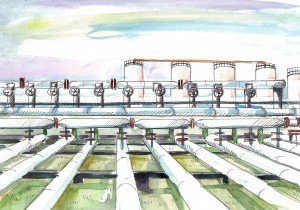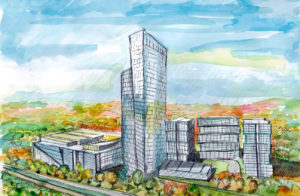
In the laws of the Republic of Kazakhstan there are no direct requirements to the developer (investor) to build social facilities (pre-schools, schools, polyclinics, etc.). This responsibility lies on our country, indirectly. The Constitution of the Republic of Kazakhstan (Article 30) states that Citizens are guaranteed free secondary education in state educational institutions.
Considering the issue of establishing educational institutions, the relevant indication of it is contained in the Law of the Republic of Kazakhstan "On Education", Article 4, Item 13, which states that the Government of the Republic of Kazakhstan creates, reorganizes and liquidates, on representation of the public administration body, public educational institutions funded through budget, unless otherwise is provided by the laws of the Republic of Kazakhstan. Article 6, Item 3, Sub-Item 5 of the Law provides that the local executive body of the capital creates, reorganizes and liquidates in accordance with the procedure established in the laws of the Republic of Kazakhstan state educational institutions that implement the general education programs for preschool, primary school, middle school, high school, vocational schools, colleges and universities, institutions of extra education for children, as well as state educational institutions implementing specialized general education and special training programs.
There are certain guidelines to provide social facilities in settlements. The requirement to build social facilities is often one of the conditions for approval of a project.
Rules #432/58-IV of Building in the City of Astana, approved by resolution of the Maslikhat of Astana city on March 3, 2011 (further the "Rules") establish that the state body of architecture and urban planning provides the preparation and coordination with the interested state bodies and operating organizations the basic permitting documents for the construction project designed, which, in addition to the location, area, boundaries, and intended purpose, has to specify all the supporting engineering, transport and infrastructure facilities on the land. In other words, in the issue of the basic permitting documents the developer is required to provide the project with social infrastructure facilities.
In each individual settlement there are their own norms of provision with social facilities. The SNIP RK 3.01-01-2008 "City Planning and Development of Urban and Rural Areas" establish approximate number of institutions and service enterprises.
The requirements on the number of preschool institutions are set, depending on the demographic structure of the settlement, taking the calculated level of provision of the children with pre-school educational institutions at 85%, including those of general type at 70%, specialized ones at 3%, and recreational ones at 12%. In the newly-built settlements, in the absence of data on demographics, one should take to 180 seats per one thousand people as the norm; while in residential areas to place at the rate of not more than 100 seats per one thousand people.
The requirements on the number of secondary schools shall be taken, taking into account 100% coverage of children with incomplete secondary education (I-IX grades) and 75% coverage of children with complete secondary education (X-XI grades) at studying in one shift. In the newly-built settlements, the rate shall be at least 180 seats per one thousand people.
Item 5.15 of SNIP RK 3.01-01-2008: the need for secondary educational institutions shall be determined, taking into account the actual demographic conditions, based on the indicators of pre-project survey.
Item 5.17 of SNIP RK 3.01-01-2008: the need for secondary educational institutions shall be determined, taking into account the demographic conditions and the set indicators of the need for such institutions for different age groups of the children.
In the construction of large projects the influx of new residents is expected thereafter, and if local authorities decide that the existing social facilities are not enough to cover the needs of all those people, the developer will have to include in the project the construction of social facilities at its own expense, or wait until such facilities will be constructed from the state budget.
Speaking of the construction in the city of Astana, the Rules establish the obligation for the entity which intends to carry out construction, to obtain an ordinance from the Akimat of Astana city, permitting to design. Before submitting the project for approval, the requirement may arise to the developer to supplement the project with construction of a school, hospital, or kindergarten. These supplements will become part of the project and will be included in developer’s costs.
Akimat or any other authorized state body motivates their demands by the fact that the President of Kazakhstan in one of his speeches said that in the construction of facilities on the territory of Kazakhstan investors should provide for the construction of social facilities.
In connection with the above-said, we recommend the potential developers / investors to evaluate such costs beforehand, to find out the real need for this or that social facility (its compliance to statutory regulations, its size, etc), to understand the procedure for further transfer of such social facilities in property of the state.
Prepared by
Viktoria Chagai,
Junior lawyer at Artyushenko & Partners
04.07.2016
In Artyushenko & Partners online Store you can buy our fixed fee legal services:







